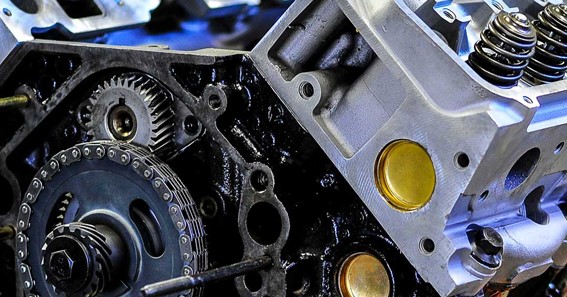Are you curious to know what is freeze plug? You have come to the right place as I am going to tell you everything about freeze plug in a very simple explanation. Without further discussion let’s begin to know what is freeze plug?
Underneath the hood of a vehicle lies a complex system of components working together to ensure optimal performance. One crucial element that often goes unnoticed is the freeze plug, also known as an expansion plug or frost plug. Freeze plugs play a vital role in protecting the engine from damage caused by freezing temperatures. In this blog post, we will explore what freeze plugs are, their importance, and how they safeguard the engine during extreme weather conditions.
What Is Freeze Plug?
Freeze plugs are circular metal plugs typically made of brass or steel that are installed in engine blocks and cylinder heads. They are strategically positioned in various locations throughout the engine to serve as safety valves. Their primary purpose is to prevent engine damage caused by the expansion of freezing coolant or water during extremely cold weather.
Function And Importance Of Freeze Plugs
1. Expansion and Contraction:
When the temperature drops below freezing, the coolant or water inside the engine can freeze and expand. This expansion can generate immense pressure that, if left unchecked, can cause significant damage to the engine block or cylinder head. Freeze plugs act as sacrificial components designed to yield under excessive pressure. They “pop out” or dislodge from their position, relieving the pressure and preventing catastrophic damage.
2. Engine Block Protection:
Freeze plugs are strategically placed in critical areas of the engine block, such as the sides, front, and back. These locations are susceptible to coolant or water pooling, making them prone to freezing and expansion. By providing an outlet for the expanding fluids, freeze plugs safeguard the integrity of the engine block, reducing the risk of cracks or fractures that could lead to costly repairs or engine failure.
3. Maintenance and Access Points:
In addition to their protective role, freeze plugs also serve as access points during engine assembly, maintenance, and repairs. They can be removed to gain access to the internal components of the engine, facilitating tasks such as replacing freeze plugs themselves, cleaning engine passages, or accessing the camshaft or crankshaft.
4. Replacing Freeze Plugs
Over time, freeze plugs can deteriorate or corrode due to exposure to the elements or coolant conditions. When a freeze plug becomes weak or starts leaking, it is important to replace it promptly to maintain the engine’s integrity. The replacement process typically involves draining the coolant, removing the damaged freeze plug, and installing a new one using appropriate tools and techniques. It is advisable to consult a professional mechanic for freeze plug replacements to ensure proper installation.
Conclusion
Although often overlooked, freeze plugs play a critical role in protecting the engine from the damaging effects of freezing temperatures. These small, circular plugs act as safety valves, relieving pressure and preventing cracks or fractures in the engine block or cylinder head. Understanding the function and importance of freeze plugs highlights the significance of regular maintenance and prompt replacement when needed. By ensuring the integrity of freeze plugs, vehicle owners can safeguard their engines, promote optimal performance, and avoid costly repairs caused by freezing conditions.
Let’s find out more facts about interesting topics on Turnonx
FAQ
What Is The Purpose Of The Freeze Plug?
Freeze plugs are an essential part of your engine, because they keep coolant from leaking out. If you neglect a leaking freeze plug for too long, your engine’s coolant could potentially leak to a level where it can no longer effectively cool your engine, and cause it to overheat, risking extensive damage.
What Are The Symptoms Of A Bad Freeze Plug?
A failed freeze plug can produce some telltale symptoms that should alert you to the need to check your engine. For instance, you may smell burning coolant or see white smoke pouring from your exhaust pipe. You may also encounter performance problems when idling or accelerating, including engine misfires.
Can You Drive With A Bad Freeze Plug?
If you have no other option, you may be able to drive with a bad freeze plug. Freeze plugs rarely fall out or fail completely so they cause slow leaks. As long as you keep your engine coolant full and your engine never gets hot, you could limp your car along with a leaking freeze plug although we never recommend it.
Can A Car Run Without A Freeze Plug?
Yes, the engine will run but will have a coolant leak.
I Have Covered All The Following Queries And Topics In The Above Article
What Is A Freeze Plug On A Car
What Is A Freeze Plug On An Engine
What Is The Purpose Of A Freeze Plug
What Is A Freeze Plug In A Car
What Is A Freeze Plug On A Truck
What Is Freeze Plug
What are the symptoms of a freeze plug
What do freeze plugs do?
